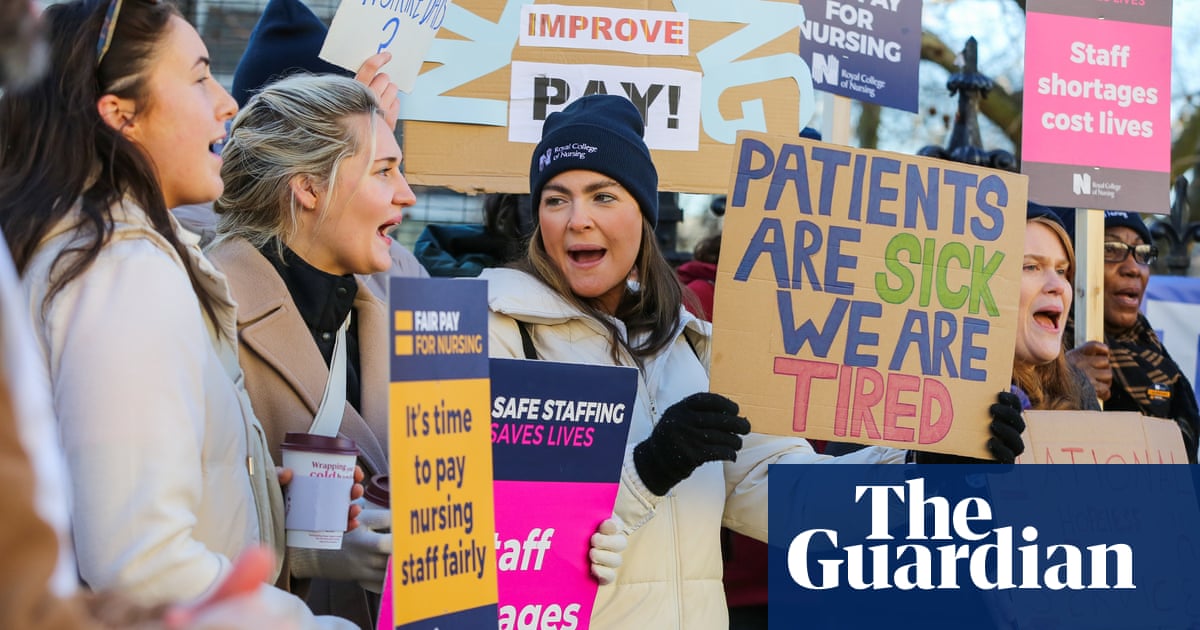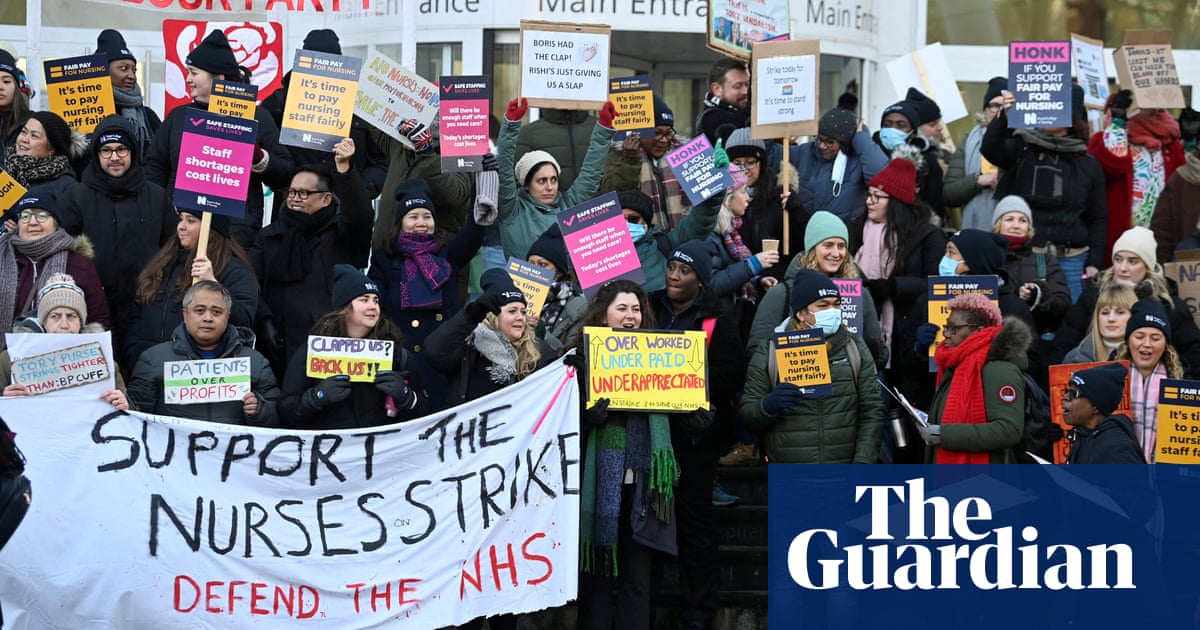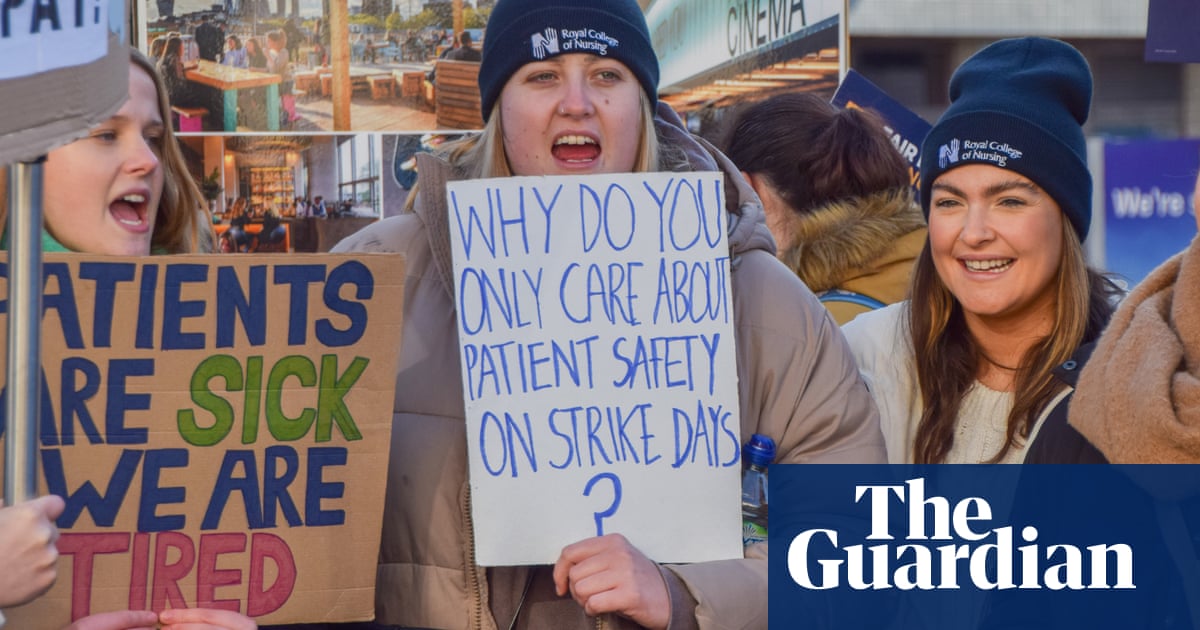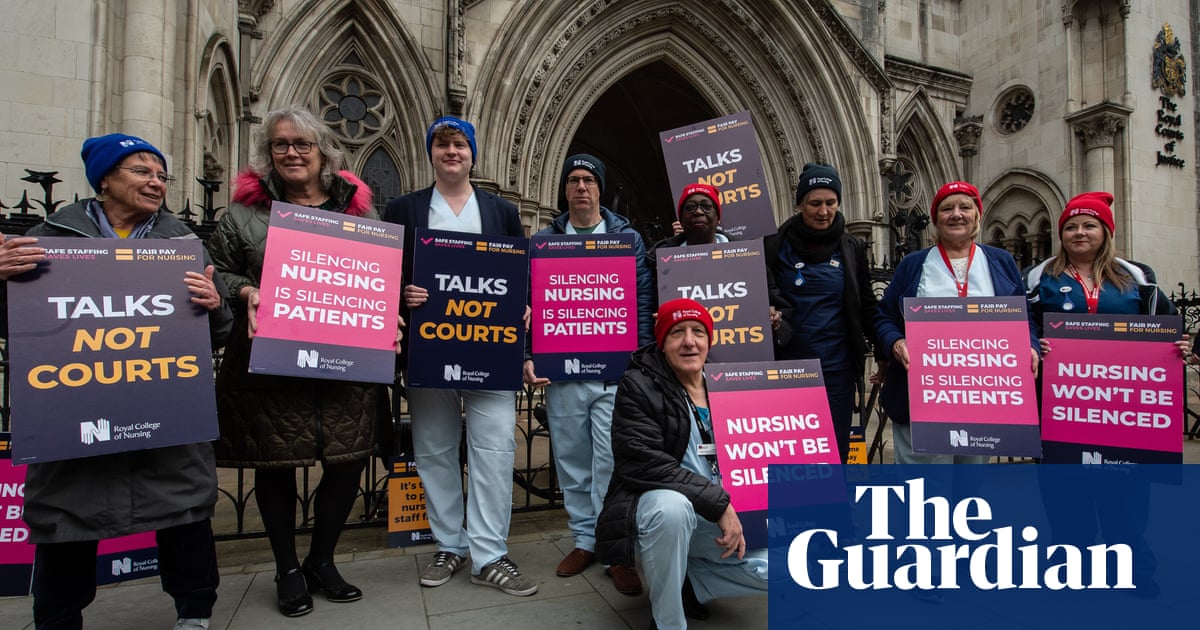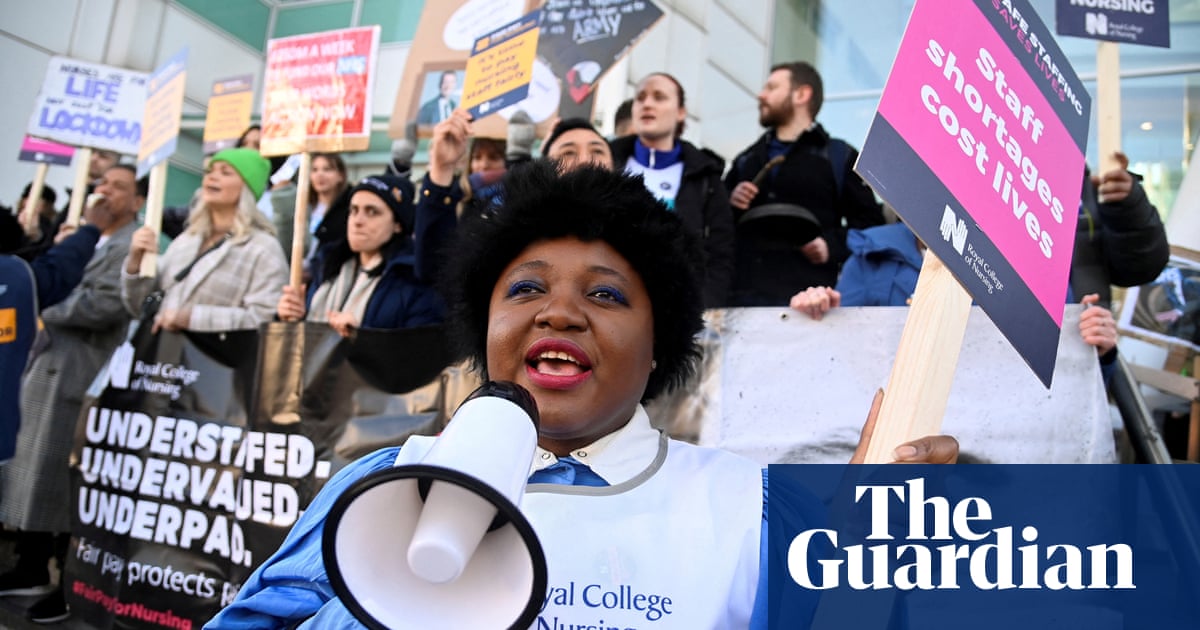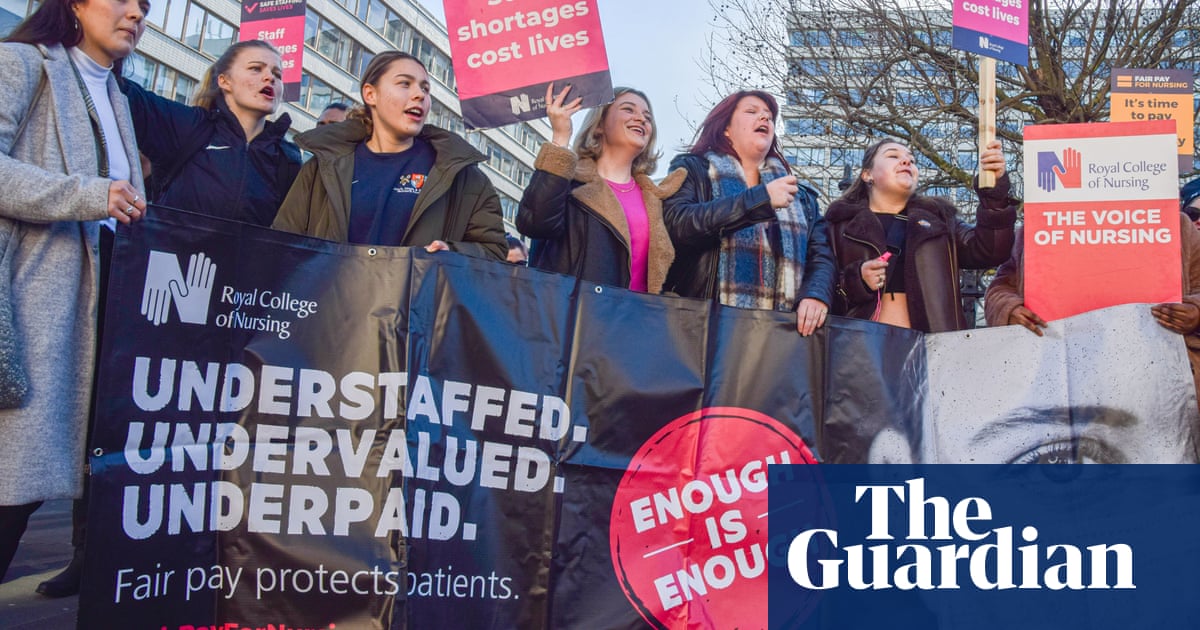
Nurses have continued their industrial action after the government was accused of being “on strike” itself during the biggest strike in NHS history.
Nurses went on strike at 73 trusts in England, up from 55 during January’s strike days and 44 in December. The bitter dispute shows no sign of a resolution in England as unions and ministers appear to be at loggerheads over 2022-23 pay for NHS staff.
On Monday, the junior minister Will Quince answered an urgent question on the strikes in parliament, prompting accusations from the Royal College of Nursing (RCN) that senior government figures including the prime minister, Rishi Sunak, and health secretary, Steve Barclay, were “missing in action”.
“People may wonder if the government is also on strike,” Pat Cullen, the RCN’s general secretary, said. “Rishi Sunak is letting the country’s most important and beloved institution deteriorate rapidly – but it is not too late. I am urging him to come to the table to negotiate and halt this action now.”
Quince, who responded on Barclay’s behalf, said the health secretary was attending a Cobra meeting so could not be in the House of Commons to answer urgent questions.
NHS leaders said it would be the “most disruptive week of strikes to date” – but urged people to seek urgent and emergency care if they needed it and attend appointments as planned unless they had been contacted in advance.
Kafeelat Adekunle, a community matron on strike, said the mood on a picket line in central London was “amazing”, with members of the public and former patients bringing tea and snacks, as well as joining striking staff in singing and drumming.
“We had a large turnout, not as large as the first one, but the solidarity of members and the public was really beautiful. There was so much love shown to us,” she said.
She added that all the reports from wards in her hospital suggested that staff had coped well and ensured patient safety, thanks to careful planning from the strike committee. Colleagues were aware that they could call up nurses from the picket line if they needed additional support, while some managers dispatched a rotating schedule of nurses to join in, and other staff members joined during their breaks, she said.
Monday was the largest strike in NHS history as tens of thousands of workers in England staged industrial action, including members of the RCN alongside GMB and Unite paramedics, call handlers and other staff at ambulance trusts.
About 88,000 procedures or outpatient appointments have been postponed because of strikes over the last eight weeks.
Ministers have said they want to look forward to next year’s pay award but unions have said this year’s pay needs to be addressed. The government has been warned of a “constant cycle” of strikes until the issue has been resolved.
Ambulance crews and call handlers were returning to work on Tuesday but are due to strike again on Friday, while physiotherapists are set to strike on Thursday.
Unions in Wales largely suspended similar action after the Welsh government came forward with an improved pay offer on Friday.




